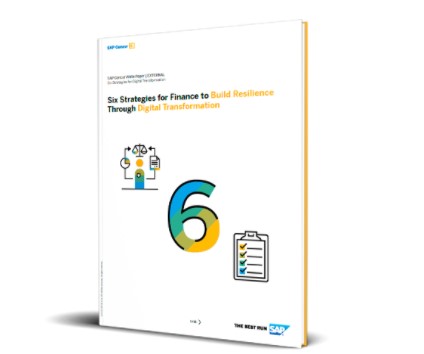How to Boost Your Finance Team’s Productivity
“Many internal departments have been targeted for significant cuts heading into 2021, and research shows that nine out of 10 organisations have had their budgets cut….” – Gartner.
If this sounds like your business, the chances are you’ll be thinking hard about how to do more with less and help your employees become more productive. When it comes to your finance team, how do you achieve this?
Unlocking Finance Team Productivity
To understand the answer, let’s look at what the productivity experts have to say.
Eric Garton and Michael Mankins, management consultants at Bain & Company, say three factors affect an organisation’s productivity. The first of these is: “The time each employee has to dedicate to productive work each day, without distraction from excessive e-communications, unnecessary meetings, or bureaucratic processes and procedures”.
Do excessive e-communications and bureaucratic processes and procedures sound a lot like a typical day for members of your finance team?
The reality is your function probably spends a lot of time on admin chores such as chasing up unapproved invoices and following up incomplete expenses. There’s also a lot of data rekeying.
Finance automation technology – like all automation technology – helps you remove a lot of this admin and do more with less. For example, data from invoices and receipts is automatically captured using intelligeny machine learning technology, so rekeying is no longer a significant part of the day. Team members can see exactly where items are in the workflow, putting an end to hunting down approvals. Every piece of paper is stored in digital format in the cloud, so there’s a complete audit trail, and you can pull up a receipt or invoice with a quick search rather than a trawl through a filing cabinet.
It’s why research among SMBs found that businesses using an integrated travel, expense and invoice solution save an average of 530 hours per finance employee per year.
This ability of automation technology to transform work is also one of the reasons 71% of boards of directors say that digital technology investments are now the top business priority post-Covid.
Using Finance Automation to Unlock All Three Productivity Factors
But what’s interesting is that by automating the finance function, you also help to unlock the last two of the three factors that Eric Garton and Michael Mankins say affect productivity:
- “The talent that each worker can bring to their job and, importantly, how an organisation’s best talent is deployed, teamed and led; and
- The discretionary energy each employee is willing to invest in their work and dedicate to the success of the company, its customers and other stakeholders.”
For example, Runjit Bhopal, Finance Director at SAP Concur customer Landbay, describes the work of his company’s accounts payable associate. “His past experience was about uploading and coding invoices. He doesn’t need to worry about that any more, it’s all taken care of by the system. What he does need to worry about is looking at the Intelligence reports and the benchmarking, identifying the trends and putting forward proposals to influence future direction. It’s a change in focus to intelligently deploying data to make business decisions or drive agility or continuous improvement.”
This more meaningful work translates to employees who are more engaged and therefore more productive. Companies that use technology to connect disparate sources of spend data for greater access and visibility into company spending have 60% higher employee trust in data and 24% higher customer satisfaction.
Boost Finance Team Productivity with Finance Technology
If doing more with less is on your agenda for this year, strategic investment in finance automation technology might be the solution. The average payback period of Concur Invoice is five months and the ROI from automated travel and expense solutions such as Concur Travel and Concur Expense is 250%. So finance automation might be one investment you can’t afford not to make.

